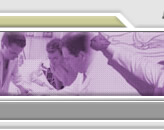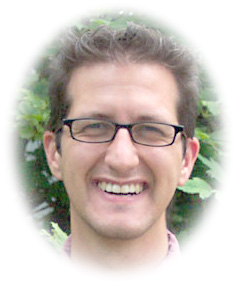



Coding - A New Doc's Worst
Enemy ? At your request, I'm opening up the discussion on coding practices. As many of you are aware, this is a quite complex issue that can not be adequately covered in one editorial. For those of you interested, then, let's start a continuing dialogue on this topic. During my residency, we received a lot of training on coding, but I know many residents are not formally trained in coding. In medical school and residency, we're taught a rational approach to the diseases we treat, then we're expected to go out into practice and just pick up on something we receive little training in and has little rhyme or reason to it. In residency, we're trying to learn how to perform treatment of patients without regard to cost. In practice, we're treating patients but also trying to get reimbursed for it. Try keeping your practice afloat without being able to bill! So, the bottom line is…get trained on coding and billing practices. Let's first talk about how to get this training. In the future we'll go into some specifics. Let me first say, though, that I am not a coding expert. I have residency training and only a month of private practice experience to draw from. Be sure to verify what you read here (as you should with everything you hear) and participate in the discussion to further everyone's knowledge. The first source for this information is your attendings. Most of them have been in practice for many years and understand the nuances of the system. Follow them in the office to see how they code their office visits and procedures. Discuss coding with them after your surgical procedures. Did you know that if you do multiple procedures in one sitting, you get paid half of the normal amount for all procedures after the first one? This is one of the reasons surgery is in many instances less profitable than being in the office. Ask your attendings what they get paid for a flatfoot reconstruction with multiple procedures. You'll be surprised at the answer. The second source is right at your fingertips: the Internet. The APMA member's site www.apma.org has some very useful information. Additionally, the APMA sells a coding manual which costs members $100. You can get the order form online. Podiatry Management Magazine's website www.podiatrym.com also has plenty of useful information. If you're so inclined, Codingline www.codingline.com has a membership service you can pay for. This may be more appropriate when you're actually in practice. Go to www.acfascodingtoday.com for a 10 day trial of their coding service. The ACFAS website www.acfas.org also has coding and practice management information. I highly recommend you attend a practice management seminar at some point before you graduate. These courses are developed and run by the experts in the field. Additionally, your hospitals may have coding workshops for their staff. See if you can sit in on these. ACFAS puts on two practice management and coding seminars. This year's is scheduled for San Antonio, TX on September 29, 30th. Go to www.acfas.org for more details. I can not emphasize enough just how important learning how to code is to your future as a physician. Don't wait until you're out in practice to learn this skill. Not only will you be more competitive in the job search, but you'll actually be able to ethically and adequately bill for the services you provide. You can be the best surgeon in the world, but if you never get paid for what you do, then you won't be in practice for long!
Talk to me,
***Looking for practice start-up resources*** Thanks for sharing your information with us regarding expenses that we should expect to incur when job searching. I myself have been seriously considering opening up my own practice. I have many questions and wondered if you could help me out in this pursuit. In my search for an area to set up practice I was wondering if you knew of sources that could help me in this regard. I do not have any restrictions on where I locate except that I want to be in a state that includes ankle privileges. How can I obtain data that will allow me to know where areas are underserved, hospitals are willing to extend privileges, etc? I am not sure what you based your decision on but any advice would be greatly appreciated. Also are you aware of any headhunters that could help with this endeavor? Anonymous Editor's Response Go to the APMA website www.apma.org and look under the Young Members' Program tab, then go to State Resources. You'll find some very useful information here including scope of practice and ankle privileges among other goodies. In the same young members section, click on the GOA tab and it will lead you to the Geographic Opportunity Manual (GOA) which provides information about underserved areas. I'd like to hear from the rest of the field on how they made or plan to make their practice location decisions. ***Looking for contract information*** You and others have mentioned the importance of working out a "fair contract," sitting down and discussing "terms that are fair to both." Perhaps I missed it, but I have yet to hear from new practitioners a discussion of the details of their fair contracts delineating their terms - in this forum. THIS is the single most important thing for me right now and part of the reason why I will be attending the AAPPM new practitioners/resident's workshop in Pittsburgh in a couple of weeks. I appreciate the fact that contracts have a degree of confidentiality attached to them. As with all legal language there are ways around this. Talk with your bosses/lawyers/accountants and see if you can disclose these FAIR contracts/terms under the guise of "Anonymous" or by some other means within this forum. I am not just interested in Associate/Partnership initial agreements but also in the buying and transition agreement from the seller to buyer and insuring the successful transfer of goodwill (isn't that ESSENTIALLY what I would be paying for?). I realize that everyone's definition of fair is different. Why can't we have a national discussion by the ones who have gone through it for the benefit of those that will be coming behind them? Benjamin Marble, DPM
|











